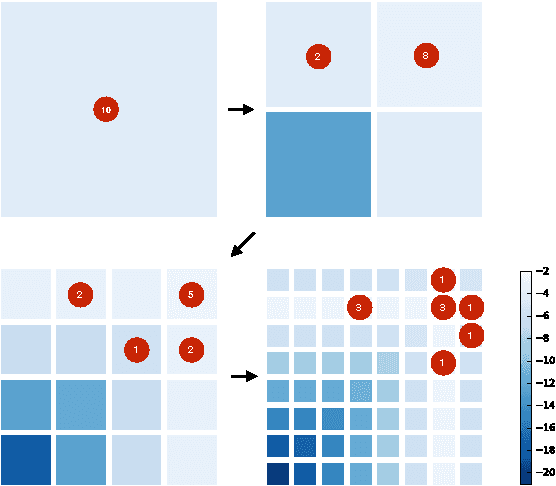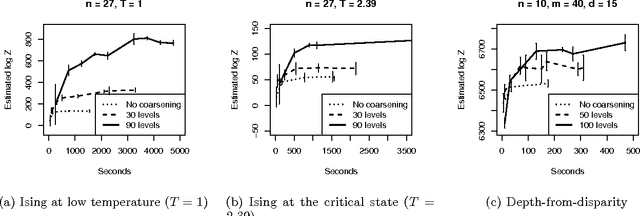Coarse-to-Fine Sequential Monte Carlo for Probabilistic Programs
Paper and Code
Sep 09, 2015



Many practical techniques for probabilistic inference require a sequence of distributions that interpolate between a tractable distribution and an intractable distribution of interest. Usually, the sequences used are simple, e.g., based on geometric averages between distributions. When models are expressed as probabilistic programs, the models themselves are highly structured objects that can be used to derive annealing sequences that are more sensitive to domain structure. We propose an algorithm for transforming probabilistic programs to coarse-to-fine programs which have the same marginal distribution as the original programs, but generate the data at increasing levels of detail, from coarse to fine. We apply this algorithm to an Ising model, its depth-from-disparity variation, and a factorial hidden Markov model. We show preliminary evidence that the use of coarse-to-fine models can make existing generic inference algorithms more efficient.
 Add to Chrome
Add to Chrome Add to Firefox
Add to Firefox Add to Edge
Add to Edge